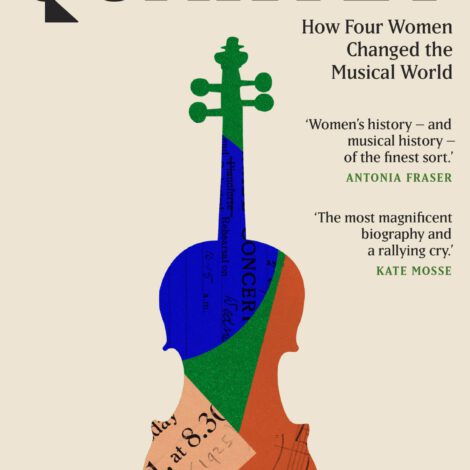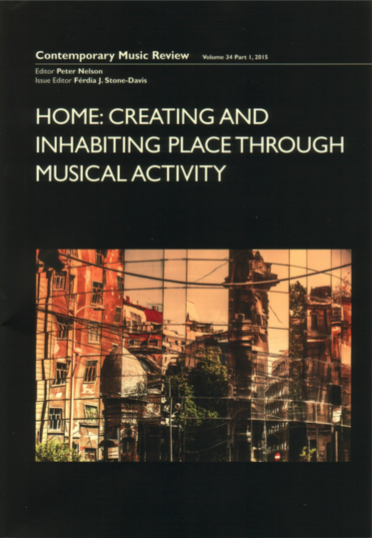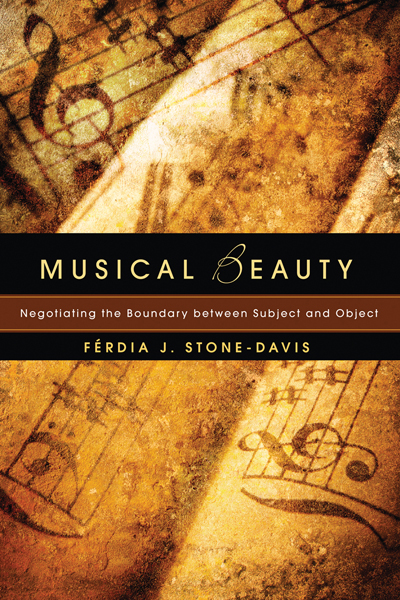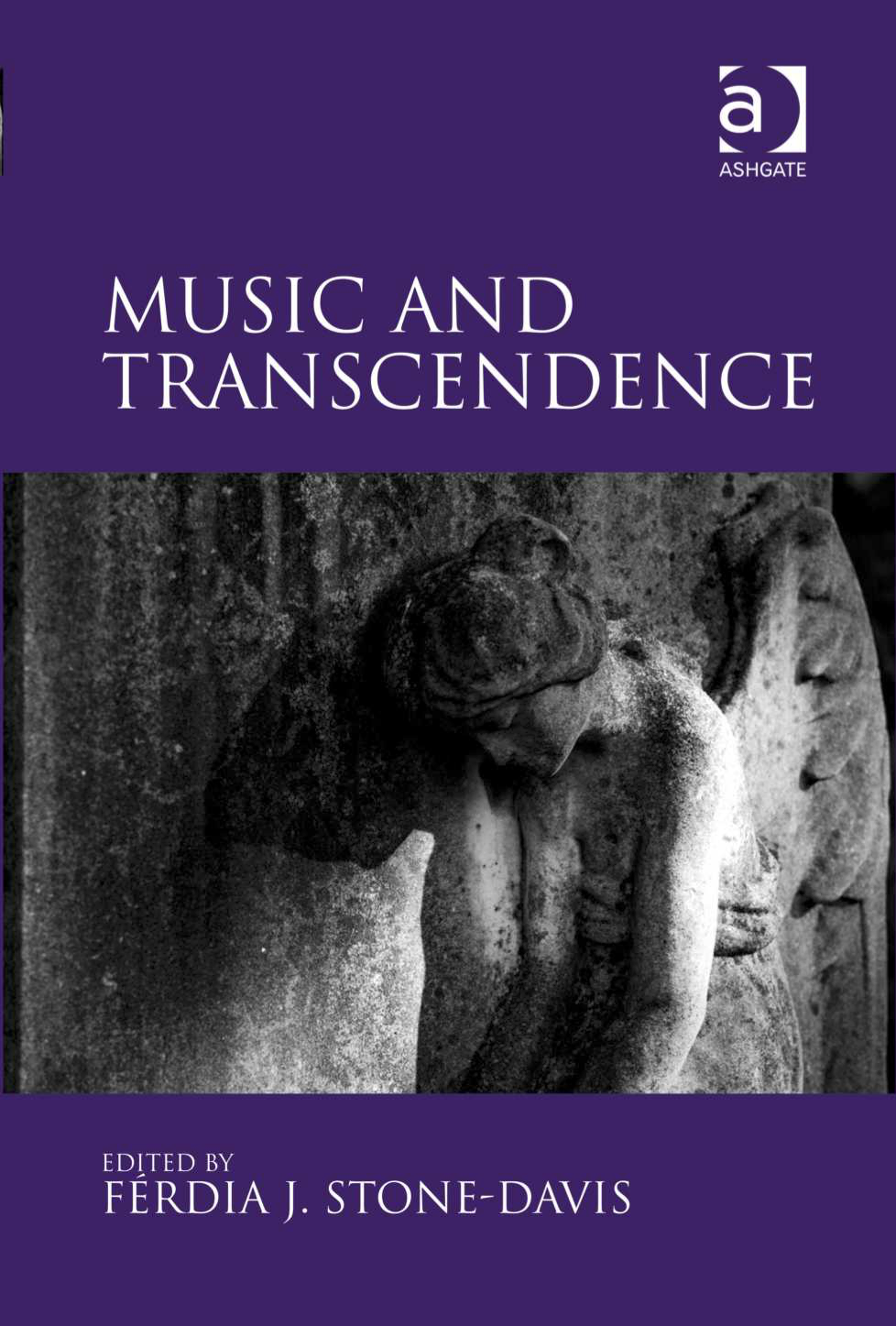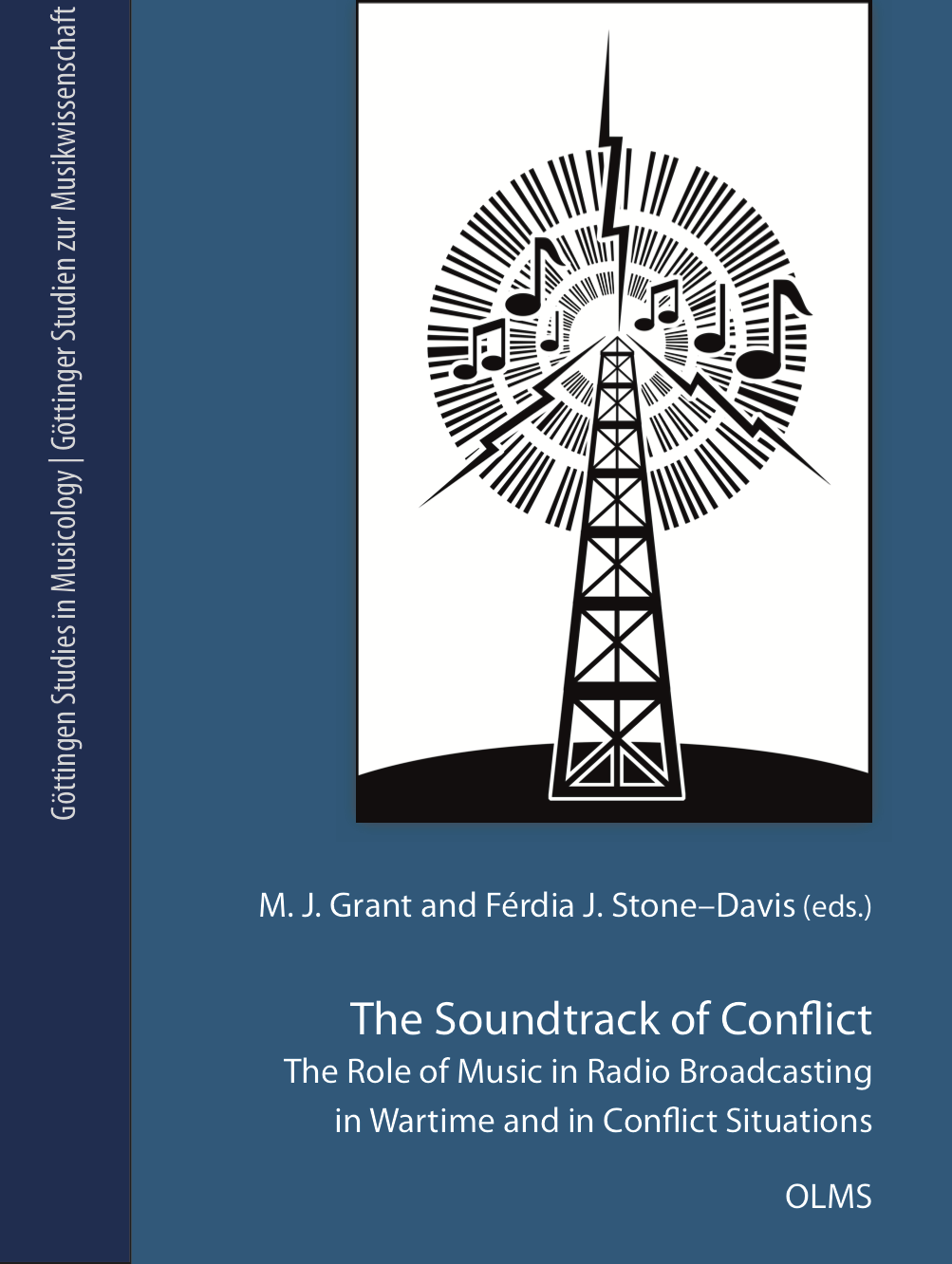
Férdia J. Stone-Davis received a BA in Theology and Religious Studies, an MPhil in Philosophy of Religion and a PhD from the University of Cambridge. She also has an MMus in Early Music Performance Studies from Trinity College of Music, London.
Férdia is Senior Scientist for the three-year FWF-funded project, ‘The Epistemic Power of Music: On the Idea and History of Artistic Research through Music’ at the University of Music and the Performing Arts, Graz, Austria. She is Director of Research at the Margaret Beaufort Institute, Cambridge, an affiliated lecturer at the Faculty of Divinity, University of Cambridge, a postdoctoral bye fellow of Murray Edwards College, University of Cambridge. She is the Chair of the Royal Music Association Music and Philosophy Study Group.
She was a postdoctoral researcher at the Department of Musicology at the University of Göttingen, Germany between 2012 and 2015 and has taught in departments of music, philosophy and theology at the University of Cambridge, Anglia Ruskin University, the University of East Anglia, and King’s College, London.
Her research interests centre upon music and its relation to philosophical and theological anthropology, ethics, epistemology and worldmaking.

The Epistemic Power of Music
On the Idea and History of Artistic Research through Music
This project started on 1 January 2022 and will run until 31 December 2024. The team comprises project leader, Professor Andreas Dorschel, co-leader, Professor Deniz Peters, senior scientist, Dr Férdia J. Stone-Davis, and doctoral candidate Anna Rezaei.
Project abstract
Can art advance our understanding of the world? Specifically, is music capable of generating knowledge? Artistic research is a burgeoning field in academia and beyond. There is consensus that artistic research is neither research about art (as in some of the humanities), nor research for art (applied research in the service of art). Rather, it is meant to be research in and through art. Beyond this general outline, though, there is disagreement; there is a need for clarification. This holds for music in particular, since its material – tone and sound – appear so remote from the conceptual sphere, closely associated with the notion of research. Scientific research is typically seen as the methodical process, with systematic intent, of gaining new knowledge that others can put to the test. Artistic research may well be different from scientific research in certain respects. Without significant overlap, however, we should not talk of artistic research at all. Specifically, research, any research, must aim at producing knowledge of some kind; otherwise the very idea loses meaning.
The current project on music as a field of artistic research is thus referred to epistemology, philosophy’s sub-discipline that, i.a., explores the nature of knowledge and then goes on to distinguish between different types of knowledge. This renders the project an interdisciplinary pursuit, mediating between musicology and philosophy. Both forms of inquiry must interlock. Philosophically, the project aims at an adequate notion of knowledge (and types of knowledge) to capture artistic research (in music). Musicologically, the issue is when, how and in what sense music in its various practices (in particular composition, performance, improvisation, listening) has produced knowledge (rather than just presupposing knowledge, as is obvious in many instances). This should lead to a direct answer to a question that has been controversial for some time: Has research been a feature of music throughout history and across cultures or has music as an art form changed only over past decades in such a way that it could (sometimes) figure as research? In all this, however, we must resist simply applying philosophical concepts to music; if and when musical phenomena suggest a fine-tuning or even correction of epistemological notions, we should be prepared to follow that line. – The Epistemic Power of Music: On the Idea and History of Artistic Research through Music thus assumes, within an international network of researchers, the character of a pioneering project at the interface between epistemology and music research.
Blog
Home
Creating and Inhabiting Place through Musical Activity
special issue edited by Férdia J. Stone-Davis
This special issue explores some of the ways in which music ‘makes sense’ by bringing into focus different types of music and various aspects of musical activity, examining how they relate to ‘home’. Contributions are motivated by two primary concerns: (1) How is home constructed musically? (2) How does the inhabiting of musical homes occur? Resonating with Edward Casey’s understanding of place as an ‘event’ rather than a ‘thing’ (1997), contributions posit musical home variously as place and journey, as bound up with location and yet positioned in between, as constituted through the conjunction of the material and the imaginative. In doing so, authors address how impermanence and changeability relate to the subject’s sense of belonging. They examine the desire to feel at-home and the sense of possession that often accompanies this desire, and consider some of the strategies through which musical places become habitable or uninhabitable.
Electroacoustic composer Trevor Wishart discusses the notion of home as it relates to identity, society, the environment and sense of community. He relates this to his own musical trajectory, including performance and composition, and pays particular attention to the role of his own voice as a means of shaping and honing his own compositional approach, including the development of software programmes.
With a focus on Vivaldi Recomposed (2012), composer Max Richter explores his approach to and understanding of composition and music in terms of storytelling and place. He discusses his changing relationship to The Four Seasons, the interchange between his own musical voice and style and that of Vivaldi’s, and the kinds of engagement his work aims to encourage.
This article critiques Nelson Goodman’s seminal account of worldmaking on the basis that it focuses on the abstract at the expense of the concrete and therefore over-emphasises rightness and coherence in the creation of world versions. Suggesting that his account ought not to be abandoned altogether, Goodman’s five worldmaking processes are used in conjunction with Judith Butler’s account of gesture as event. The article suggests that worldmaking inevitably involves worldbreaking not simply in the sense of transforming already existing world versions but in terms of the co-existence of world versions within a single location. Pussy Riot’s action ‘Mother of God, Chase Putin Away’ in the Cathedral of Christ the Saviour forms the case in point, drawing out the dynamic between worldmaking and worldbreaking and showing how it is inevitably and powerfully bound up with performance and context.
Musical Beauty
Negotiating the Boundary between Subject and Object
Férdia J. Stone-Davis
Musical Beauty takes a historical perspective on key aesthetic issues, examining Anicius Boethius and Immanuel Kant. It shows how their contrasting conceptions of beauty are formed according to prior conceptions about the self and the world (and convictions about the priority of either one or the other). In both Boethius and Kant, beauty is a term that helps establish the nature of the relationship between the self and the world, subject and object, and influences how the physicality of music and musical meaning is understood.
Questioning the neglect of music’s physicality within these accounts Musical Beauty looks at the legacy of this neglect in certain strands of recent philosophy, where musical significance is often located in and determined by predominantly conceptual considerations. It also questions the modern subversion of the concept of beauty, contending that beauty is to be understood in terms of a simultaneous mutuality and irreducibility of subject and object. Here, the subject becomes porous and open to that which cannot be determined, is beyond her control, and can thus be both rich in meaning and transformative. Musical Beauty suggests that the physical aspects of music (such as the fact that music is sound waves and physically impacts upon the human body, and is produced by physical actions) are the primary means through which this interaction occurs, since it thereby has the capacity to arrest our attention, draw us towards it, and so focus our attention on the ‘other’.
Beauty leads to more than just pleasure. This elegant new study argues that it can reveal epistemological insights as well, and that musical beauty in particular can help us better understand our relationship to the world around us. As Stone-Davis argues, musical beauty is the most abstract, problematic, and, for that very reason, the most revealing of all varieties of beauty in art. She brings both historical and contemporary perspectives to this wide-ranging account.
—Mark Evan Bonds, Boshamer Distinguished Professor of Music, University of North Carolina
“The philosophy of music is finally starting to emerge from the straitjacket imposed by the analytical tradition. Férdia Stone-Davis’ Musical Beauty makes a vital contribution to the growing realization that music is a resource for philosophical thinking, rather than simply an object to be defined by philosophy.”
—Andrew Bowie, Professor of Philosophy and German, University of London
“Here is a fresh and impressive new voice in the burgeoning conversation between music and theology. With considerable skill, Dr. Stone-Davis negotiates two of the most important figures in Western aesthetics. She emerges with striking proposals about the interrelation of beauty, physicality, and musical perception that have far-reaching consequences, affecting every aspect of the way we hear and listen to music in our own time.”
—Jeremy Begbie, Thomas A. Langford Research Professor of Theology, Duke University
Introduction
- The Boethian Understanding of the World, the Role of Beauty, and the Value of Music
- Inhabiting Harmony—The World as a Series of Relations: An Examination of the Fundamentals of Music
- Know Thyself—The Place of Humankind within Created Beauty: An Examination of The Consolation of Philosophy
- The Kantian Understanding of the World, the role of Beauty, and the Value of Music
- The Play of Harmony—The Subjective Powers in Relation: An Examination of the Critique of Judgement
- Creating Beauty: Genius and the Work of Art
- Musical Beauty: An Enchanted Mode of Attention
- Conclusion
Music and Transcendence
edited by Férdia J. Stone-Davis
This edited volume explores the ways in which music relates to transcendence by bringing together the disciplines of musicology, philosophy and theology, thereby uncovering congruencies between them that have often been obscured. Music has the capacity to take one outside of oneself and place one in relation to that which is ‘other’. This ‘other’ can be conceived in an ‘absolute’ sense, insofar as music can be thought to place the self in relation to a divine ‘other’ beyond the human frame of existence. However, the ‘other’ can equally well be conceived in an ‘immanent’ (or secular) sense, as music is a human activity that relates to other cultural practices. Music here places the self in relation to other people and to the world more generally, shaping how the world is understood, without any reference to a God or gods. The book examines how music has not only played a significant role in many philosophical and theological accounts of the nature of existence and the self, but also provides a valuable resource for the creation of meaning on a day–to–day basis.
Music and Absolute Transcendence
Music and the beyond in the later Middle Ages.
Christopher Page
Hearing the transcendental place: sound, spirituality and sensuality in the musical practices of an Indian devotional order.
Sukanya Sarbadhikary
‘Sonorous air’: the transcendent in Ferruccio Busoni’s aesthetics of music
John Habron
Creatio ex improvisatio: Chrétien on the call
Bruce Ellis Benson
Unwritten theology. Notes towards a natural theology of music
Russell Re Manning
Music and the transcendental
Roger Scruton
Theomusical subjectivity – Schleiermacher and the transcendence of immediacy
Jonas Lundblad
Negotiating musical transcendence
Jeremy S. Begbie
Music and Immanent Transcendence
C.P.E. Bach’s Heilig and ‘the Holy’ of Rudolf Otto: An 18th-century experience of the Mysterium Tremendum
Joshua A. Waggener
Music and world-making: Haydn’s String Quartet in E flat major, op. 33 no. 2
Férdia J. Stone-Davis
Music and Immanence: the 1902 ‘Beethoven Exhibition’ and the Vienna Secession
Diane V. Silverthorne
‘Where nature will speak to them in sacred sounds’: music and transcendence in E.T.A. Hoffmann’s Kreisleriana
Thomas J. Mulherin
Religious music as child’s play: Gadamer’s hermeneutics and instrumental music
Oane Reitsma
Immanence, transcendence and political song
Christopher Norris
Music, transcendence and philosophy
Andrew Bowie
The Soundtrack of Conflict
The Role of Music in Radio Broadcasting in Wartime and in Conflict Situations
Since the early twentieth century, radio has been one of the most important media both generally and in the specific context of armed conflict. Relatively cheap and with the ability to transmit over long ranges – and over international borders – radio has become central to the wartime strategies of governments and guerrilla groups alike. The role of music on radio in wartime and in conflict situations has, however, only rarely been the focus of scholarly attention, despite the central role that music plays in this medium.
The essays in this co-edited volume offer case studies that explore the many important roles that music broadcast on radio can play in wartime and in conflict situations – as a means of information (and misinformation), as a communication medium by those separated by and yet connected through the fighting, and as an aid to managing the complex emotions that are experienced. Moreover, the essays demonstrate that music is not just a soundtrack to conflict, but can also influence the very course that a conflict takes. In the range of examples discussed and the theoretical issues raised, the volume presents a significant contribution to the musicological study of war and conflict.
Introduction
M. J. Grant and Férdia J. Stone-Davis
Music in Radio Broadcasts in the Gulag
Inna Klause
Defining a European ‘New Order’ through Music: Ancient Music in Italian Radio Broad-casting during the Fascist Period
Mauro Fosco Bertola
Music on the Airwaves in Occupied France
Karine le Bail
Jazz, World War II Radio Propaganda and the Case of Tokyo Rose
Katherine A. Baber
Music in Greek Radio Broadcasting in Wartime (1940–1950): Complicity and Resistance
Elli Charamis
Propaganda and Music: Greek and Yugoslav Public Radio in the 1940s and 1950s
Vlasis Vlasidis
Henry Cowell and the Development of Iranian State Radio for the United States Information Agency
Peter Schimpf
Radio Freedom, Songs of Freedom and the Liberation Struggle in South Africa (1963–1991)
Sekibakiba Peter Lekgoathi
The Free Voice of China: Pirate Radio Broadcasts of Teresa Teng from Taiwan and Hong Kong during the Cold War in Asia
Chen-Ching Cheng
Integration or Separation? A Story of Radio and Music in Fiji
Ruth Finnegan
Radio and Music in the Last Months of the Eelam War in Sri Lanka
Pradeep N’ Weerasinghe
Broadcasting and the Musicology of War: The Case of Sierra Leone
Paul Richards
Martial Music at Dawn: Introit for Coups d’État
Oluwafemi Alexander Ladapo
The Musicology of Justice: Simon Bikindi and Incitement to Genocide at the International Criminal Tribunal for Rwanda
James Parker
Sonic Consumerism and Audience Manufacture in US Music Broadcasts to the Middle East
Beau Bothwell
F. J. Stone-Davis, ‘Vivaldi Recomposed: Musical Borrowing, Worldmaking, and Musical Listening’, in Max Richter: History, Memory and Nostalgia, ed. Delphine Vincent, 79–96 (Brepols, 2024).
F. J. Stone-Davis, ‘An Adorative Posture towards Music and Spiritual Realities’, in Music and Christian Spirituality: Theological Approaches, Empirical Methods, and Worship Practices, eds. George Corbett and Sarah Moerman (Open Book Publishers, 2024). DOWNLOAD
F. J. Stone-Davis, ‘Call and Response: Negation and the Configuration of Desire’, in Art, Desire, and God: Phenomenological Perspectives, eds. Kevin Grove, Christopher C. Rios, and Taylor J. Nutter, 13–27 (Bloomsbury, 2023).
F. J. Stone-Davis, ‘Boundary work and the hospitable border, a review of Why Borders Matter: Why Humanity Must Relearn the Art of Drawing Boundaries by Frank Furedi’. Global Discourse 11(3): 555–558 (Bristol University Press 2021).
F. J. Stone-Davis, ‘Revaluing Silence’, in On Commemoration, ed. Kate McLoughlin (Peter Lang, 2020), 313–316.
F. J. Stone-Davis, ‘The Consolation of Philosophy and the ‘Gentle’ Remedy of Music’, in Music, Myth and Story in Medieval and Early Modern Europe, eds. K. Butler & S. Bassler (Woodbridge: Boydell & Brewer, 2018), 32–45.
F. J. Stone-Davis, ‘Entering the Unknown: Music, Self and God’, in The Religious Philosophy of Roger Scruton, ed. J. Bryson (New York: Bloomsbury, 2016), 165–76.
F. J. Stone-Davis, ‘Punk Political Science – Worldmaking, Worldbreaking and Living on the Edge‘. Crick Centre Blog (2016).
F. J. Stone-Davis, ‘Making an anthropological case: cognitive dualism and the acousmatic’, Philosophy: The Journal of the Royal Institute of Philosophy 90(352): 263–76 (Cambridge: Cambridge University Press, 2015).
F. J. Stone-Davis, ‘Music and Liminal Ethics: Facilitating a ‘Soulful Reality’’, in The Resounding Soul: Reflections on the Metaphysics and Vivacity of the Human Person, eds. E.A. Lee and S. Kimbriel (Eugene, OR: Veritas, Wipf and Stock, 2015), 285–304.
F. J. Stone-Davis, ‘Introduction: Sense Making and Place Making Through Music’, in ‘Home: Creating and Inhabiting Place through Music Activity’, Contemporary Music Review 34(1) (2015), 1–4, ed. F. J. Stone-Davis (Oxford: Taylor and Francis). DOWNLOAD
F. J. Stone-Davis, ‘Worldmaking and Worldbreaking: Pussy Riot’s Punk Prayer’, in ‘Home: Creating and Inhabiting Place through Music Activity’, Contemporary Music Review 34(1) (2015), 101–20, ed. F. J. Stone-Davis (Oxford: Taylor and Francis).
F. J. Stone-Davis & T. Wishart, ‘“Vocalising Home”: An Interview with Trevor Wishart’, in ‘Home: Creating and Inhabiting Place through Music Activity’, Contemporary Music Review 34(1) (2015), 5–21, ed. F. J. Stone-Davis (Oxford: Taylor and Francis).
F. J. Stone-Davis & M. Richter, ‘Vivaldi Recomposed: Max Richter in conversation’, in ‘Home: Creating and Inhabiting Place through Music Activity’, Contemporary Music Review 34(1) (2015), 44–53, ed. F. J. Stone-Davis. (Oxford: Taylor and Francis).
F. J. Stone-Davis, ‘Introduction’, Music and Transcendence, ed. F. J. Stone-Davis (Aldershot: Ashgate, 2015), 1–10.
F. J. Stone-Davis, ‘Musical Meaning and Worldmaking: Haydn’s String Quartet in E flat major (op. 33 no. 2)’, in Music and Transcendence, ed. F. J. Stone-Davis (Aldershot: Ashgate, 2015), 125–45.
M. J. Grant & F. J. Stone-Davis, ‘Introduction’, in The Soundtrack of Conflict:
The Role of Music in Radio Broadcasting in Wartime and in Conflict Situations, eds. M. J. Grant & F. J. Stone-Davis. Göttingen Studies in Musicology (Hildesheim: Georg Olms Verlag, 2013), 7–12.
F. J. Stone-Davis, ‘The Genteel Companion by Humphrey Salter: Gracing as Method’. The Consort 64 (2008).
Férdia can be contacted either using the form below or via email: fjs23@cam.ac.uk

 https://orcid.org/0000-0003-3649-2062
https://orcid.org/0000-0003-3649-2062


